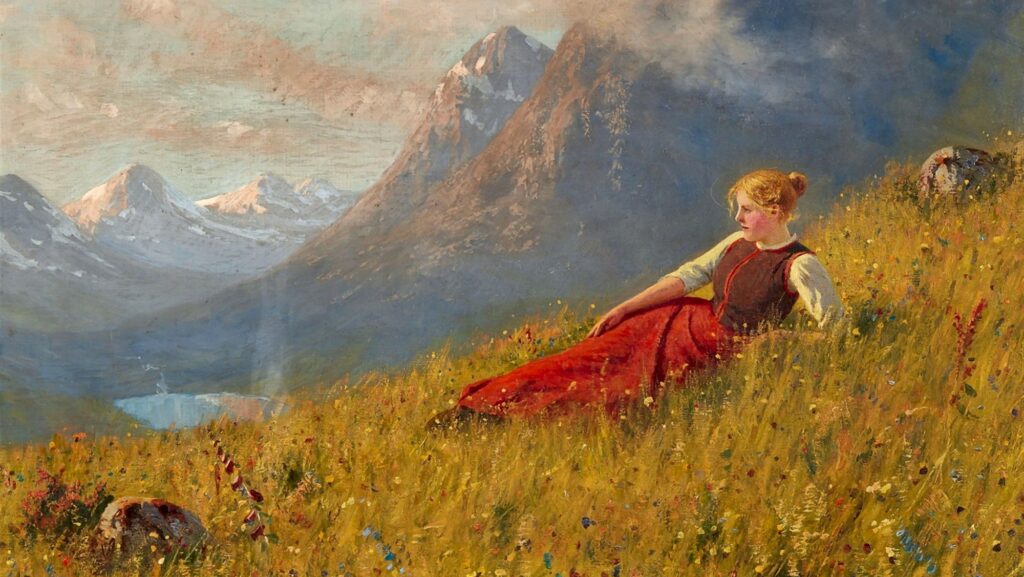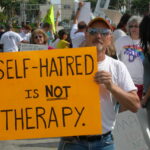Blog Post
Sigrid Undset’s Powerful Portrayal of the Consequences of Sin
n his essential book Strange New World: How Thinkers and Activists Redefined Identity and Sparked the Sexual Revolution, Carl Trueman observed that the social imaginary that has developed in recent decades (in film, literature, and on TV) is not only post-Christian but increasingly anti-Christian. During a recent interview, I asked him what it might look like for Christians working in cultural fields to construct or recover a Christian social imaginary. Trueman is a conservative Presbyterian, but he has his students read a number of Catholic works and noted that he sees a growing Protestant interest in Sigrid Undset’s Kristin Lavransdatter trilogy, which celebrated its centenary last year. I decided to read it.
I suspect that recent interest is fuelled in part by Tiina Nunnally’s magnificent translation—Undset’s historical masterpiece, which earned her the Nobel Prize in Literature in 1928, had been obscured for previous generations of English readers by clunky, archaic translation. Nunally’s is stunning, and Kristin Lavransdatter is one of the best works of historical fiction I have ever read. Medieval Norway comes alive with Undset’s skillful weaving of landscapes, psychologically complex characters, and the day-to-day practices of another world in which the echoes of paganism could still be faintly but audibly heard.
Her work, as Trueman implied, is also an example of what can be produced when a genius at the height of her powers turns her attention to the sacred. Here, for example, is her description of the clergyman Gunnulf contemplating and finally envisioning the Crucifixion as he is at prayer:
The hill with the three crosses against the sky. The cross in the middle, which was meant to bear the king of heaven and earth, shook and trembled; it bent like a tree in the storm, in fear of bearing too much precious burden, the sacrifice for all the sins of the world. The lord of the storm tents forced it, the way a knight forces his defiant stallion; the chieftain of heaven carried it into battle. Then that miracle occurred which was the key to ever deeper miracles. The blood that ran down from the cross in redemption and penance for all sorrows—that was the visible sign. With this first miracle the eye of the soul could be opened to contemplate those still hidden—God, who came to earth and became the son of a virgin and brother to the human kin, who lay waste to Hell and who, with the released souls that were his spoils of war, stormed toward the dazzling sea of light from which the world was born and which sustains the earth. It was toward that unfathomable and eternal depth of light that his thoughts were drawn, and there they perished in the light, vanishing like a flock of birds into the radiance of an evening sky.
Throughout the trilogy, Undset masterfully portrays the consequences of sin—the guilt, the terror, the unraveling, and the unforeseen consequences. Kristin Lavransdatter lives within a totalizing Catholic society, but Undset, while being honest about the flaws of both the system and the clergy (with their many illegitimate children), is clear that the moral wounds we inflict on ourselves and others are, fundamentally, at the root of our misery. She accomplishes this as powerfully as Dostoevsky in Crime and Punishment. Post-Christian literature often revels in sin, and some of the most talented writers of our time have wasted their powers with masturbatory fantasies. Better writers highlight a better way.
The power of Undset’s realism is occasionally disturbing. A.H. Winses noted her unblinking rendering of “the passions, hate and love, betrayal and loyalty, the idyllic and the tragic, of the whole of life from the movement of the embryo in the womb to the withering of the body and death, from the smell of blood which a human child draws in as it comes into the world up to the highest forms of conscious existence … Few writers have seen deeper into the unpleasantness of life, into mankind’s destitution and wretchedness. We should not close our eyes, she said … to ‘what a shocking business human life is.’ But she does not close her eyes to what is most shocking of all: man’s own guilty responsibility for his wretchedness.”
Indeed, Undset’s moral power comes from the fact that she portrays human wretchedness as wretchedness; she does not wallow in wickedness as so much of our post-Christian storytelling does. She recognizes that the source of man’s misery is not Christianity, not religious institutions with all their manifest flaws, not even medieval society as such. Undset died in 1949, but she was a fierce critic of the decline of faith she saw unfolding in the West. “The morality code that remains after the religion that produced it is rejected is like the perfume that lingers in an empty bottle,” she declared.
READ THE REST OF THIS COLUMN HERE








